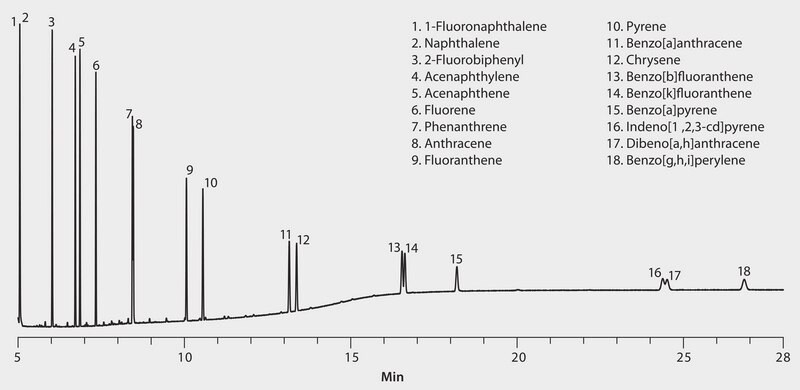US EPA Method 610: GC Analysis of Polynuclear Aromatic Hydrocarbons (PAHs) on SPB®-608

Materials
analytical column
CONDITIONS
column
SPB-608, 30 m x 0.25 mm I.D., 0.25 μm (24103-U)
oven
70 °C (0.2 min), 25 °C/min to 265 °C, 5 °C/min to 300 °C (12 min)
inj. temp.
250 °C
detector
FlD, 300 °C
carrier gas
helium, 1.3 mL/min, constant
injection
2.0 μL pulsed splitless (30 psi until 0.2 min)
liner
4 mm I.D. single taper
sample
PAH standard, 1 μg/mL in methylene chloride
Description
Analysis Note
US EPA Method 610 describes the analysis of polynuclear aromatic hydrocarbons (commonIy referred to as PAHs or PNAs) by both HPLC and GC. The method designates the use of a packed GC column, however capillary columns will provide better resolution, baseline stability and longer lifetime. This application illustrates the separation of the target compound list in this method on the SPB-608 capillary GC column. Overall analysis time on the SPB-608 is longer than the SLB-5ms due to stronger retention and its lower maximum operating temperature. A pressure pulsed injection was used to improve response of the heavier PAHs, and to reduce the larger vapor volume resulting from a 2 μL injection.
Legal Information
SLB is a registered trademark of Merck KGaA, Darmstadt, Germany